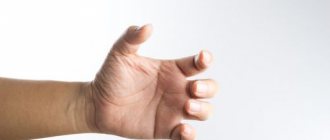Addiction to the Internet and social networks has become one of the main problems in the twenty-first century. The simple desire to watch funny videos with cats, funny pictures, photos of friends and colleagues becomes the only free time activity that can be spent with family, children, friends, or just reading a book. Guide Online figured out how to get rid of Internet addiction and what services will help with this - start living a real life without Facebook and Instagram.
Internet addiction test
It is very easy to determine addiction; you can take a special Internet addiction test, all this can be done at home and right now. From the test questions you can find out whether you or your teenager are an “information addict”. You can talk about some degree of dependence if you:
- The first thing you do when you wake up in the morning or return home in the evening, as well as before going to bed, is check your email and social networks or some other news on the Internet.
- Always be on your mobile device when you are away from home or at school.
- You can't give up your computer to go outside, play sports, or just hang out with friends. And when you are in a company, your best interlocutor is a smartphone with access to a social network.
- Constantly post messages on Facebook, Twitter, Vkontakte or Instagram about all your meetings, activities, studies or vacations with friends. You literally don’t let go of your smartphone camera for one purpose - to quickly post the next photo on Instagram.
- You are unable to do new important things due to lack of time for all your social networks: maintaining pages, checking new messages, communicating on forums, product reviews.
- You feel uneasy if you are completely disconnected from the Internet for more than 10 minutes.
- You can’t imagine yourself a whole day without access to the World Wide Web. Do you not understand what you can do outside the Internet and how to spend your time?
If none of the above is a problem for you, then you do not have an Internet addiction. But if you see yourself in any of the above, then you should think about it. By the way, we advise you to take a test for gaming addiction to computer games).
Basic symptoms
An alarm bell that indicates the presence of Internet addiction is being online for 5 hours or more. This form of addiction affects from 2% to 10% of the population of the entire globe, according to various sources. Not only teenagers who grew up in the Internet era can suffer from this scourge, but also to a much greater extent young and middle-aged people who have seized upon the desired alternative replacement for an unsatisfactory reality.
There are common symptoms that indicate a shift in priorities in favor of virtuality:
- the desire to always be online, withdrawal symptoms;
- irritability when there is no Internet for a long time;
- neglect of appearance;
- sleep disorder;
- irregular nutrition, lack of it or overeating;
- conflicts with others;
- attention disorder;
- willingness to invest money on the Internet;
- refusal of entertainment and communication in real life.
Step-by-step instructions on how to deal with Internet addiction
Don't know where to start? Then explore these few simple tips you can implement today. The best way to combat computer addiction is to start with small, simple steps in assessing and changing habits and learning to lead a balanced life.
Evaluate your habits
First, think about what fascinates you most on the Internet? Why do you lose track of time? To do this, for several days, keep with you a pen/pencil and a convenient small piece of paper, divided into sections: social networks, YouTube, Instagram, searching and reading information.
Record any of your movements on the Internet in it, placing a mark next to these things on a piece of paper. This will help you understand what you are dealing with.
Train yourself to take a short break
Addiction is something we often do automatically without thinking. Therefore, after identifying your habits, you should try to break this chain: desire-habit-automatic action , inserting a short pause between them. For example, when you feel like playing on the Internet, just stop for a few seconds.
During this pause, ask yourself: “Have I thought so many times how to get rid of gambling addiction? Do I really want to sit down and play again and is this habit stronger than me? Even if after this you still give in to your desire, since the Internet has tied you with a chain, the important thing is that there was already some small pause in your automatic actions.
Every hour a short break
Even if you're stuck on sites you're addicted to, try to take a two-minute break once an hour. Set a reminder on your computer to remind you every hour to take a break. As soon as the reminder pops up, get up from your desk and walk for 5-10 minutes instead of two.
Do some push-ups or squats. You can even clean your room or work area. Talk to someone in person. Drink some water and eat fruit.
Returning to your computer, try closing the open browser (not minimizing it, but closing it) and do something unrelated to it before returning to the Internet. For example, draw some kind of graph or create a table in XML, draw a picture in Photoshop. It will be difficult at first, but over time it will become easier and the duration of the breaks will increase.
Changing habits
When it comes to how to get rid of computer addiction, an important step is for a person to completely change his habits. It may take you a month, two, or maybe more to completely change your Internet addiction habit, but it’s worth it. Because any change made halfway will not last long.
Start with the biggest trigger. So, you have identified your habits and learned to take short breaks, as recommended above. Now it’s important to know your most common triggers—the things that cause you to “hide and escape” on the Internet. These could be conflicts in the workplace, fatigue, stress, family quarrels, reluctance to do homework, boredom, secret passions.
Whatever your triggers, choose the one that most often motivates you to go online. If there are several of them, simply choose one of them by lot.
Choose a replacement
Think about what is the best way to replace checking email, social networks, computer games or wandering around the world wide web in search of any information? Choose something positive and fun that you can do in 5 minutes whenever your chosen trigger hits you.
This could be audio listening to several pages of a novel, keeping a personal diary, playing sports, walking, drawing cartoons, reading jokes, or practicing learning a foreign language. The subsequent fight against Internet addiction will be effective only when you learn to replace the trigger that happens to you with your chosen activity every time. This will help break the chain of addiction.
Replacing an old habit with a new one
Perform a new habit every time after the trigger occurs. Do not allow any exceptions, otherwise it is unlikely that you will be able to create a positive habit. A new habit forms much faster and stronger if it is done consistently immediately after the trigger. To be inconsistent and continue to hesitate to change is to allow an old habit to remain in place.
Even if you fail a few times, that doesn't mean you should give up - just start again and try to be more consistent. Figure out why you failed and plan to overcome that obstacle. At the same time, set a rule for yourself - no exceptions, no matter how much you want it!
(By the way, we advise you to find out what types of Internet addiction can both an adult and a teenager get into?)
Learn to live a balanced life
Ultimately, it's good to have an idea of what life would be like without internet addiction having the power to control you. What will be your success at work and school? What will you look like if you don't constantly surf the Internet? How much will your health and appearance improve? But for this you need to understand and do something.
Try to understand the correct purpose of your actions
The goal is not to eliminate all sources of information and be disconnected from the online world. This doesn't mean throwing away your iPhone, tablet, or laptop. These tools are incredibly useful and even necessary (some people make a living using them). They have many positive aspects.
But when it comes to how to overcome Internet addiction, it is important not to let these sources of information control your life and not turn yourself into a skeleton sitting in front of the monitor. On the contrary, lead a life in which there is enough useful time for other activities.
Make a schedule
Plan a list of things to do that are not related to the Internet. This will help you reserve time for these activities. For example, you want to exercise, set aside some time during the week to exercise (even 30 minutes 3 times a week). Include time in your schedule for guests, for walks alone, for some hobbies: fishing, sports, a bath with friends - whatever you see fit.
Work without distractions
Every morning, identify 1-3 important things you are going to do that day.
- Do the first thing before you dive into email or internet games, surfing.
- When starting the second important task for today, close your Internet browser (if you can). As a last resort, ask someone at home to turn off the router and leave it turned off for an hour.
- Before your third scheduled task, turn off all notifications on your computer and mobile device. Close everything except what you need to complete your task.
There is at least one explanation for all these actions : you must learn to focus on completing a specific task if you want to get rid of Internet addiction and fight it.
Limit your time on the Internet
Schedule (short) time with your sources of information. Think about how often you want to check your email and your social media pages (or other sites)? Choose a time and schedule to use these tools in your life, also setting a limit of twice a day for only 15 minutes per session.
This limit allows for efficient use of limited time. Encouraging you to decide what is important to do on the Internet within this time, and not wander aimlessly around the World Wide Web.
Choose your sources wisely
Eliminate all sources of information, leaving only those that you cannot do without. Sometimes we use these things just because everyone else has them. Or because today it is popular to have a page on Instagram, Facebook or VKontakte, but at the same time they do not improve or make our lives easier.
For example, some deleted their accounts from Odnoklassniki, and did not look at their pages on Facebook, Instagram or VKontakte for more than a year. Their life goes on!
You can do this to save yourself from endlessly looking at things that are not very important. Or you can choose to bookmark only 10 really good blogs, rather than 50 that once caught your attention. Your time and attention are priceless, so you should only spend them on things that truly make your life better.
Make sleep a priority
Lack of rest makes us less able to concentrate, which means we deviate from planned self-control more quickly and easily. According to some studies, it also makes us more susceptible to the Internet.
Monkey brain and dopamine buttons
We find it difficult to limit our digital presence because our monkey brain sees it as a cheap way to get pleasure.
Besides fear, the most important behavioral motivator is reward. Reward is associated with the pleasure center, which releases appropriate neurotransmitters (particularly dopamine) when we do something that was once associated with the survival of the human species.
Here's what increases dopamine levels (though this is not a complete list):
- Social interaction
- Sex
- Punishment of those who “deserve it”
- Novelty and surprise
- Humor
- Possession of irrefutable evidence/sense of self-righteousness
In the early stages of human development, all these things were closely related to survival. Now you can endlessly enjoy all this by receiving surrogates from the virtual world.
Your smartphone, laptop, social media, your email client, your favorite blogs and streaming services - the monkey brain perceives them as big shiny dopamine buttons. Press the button and you will get the result. If you want more, press again.
We might not take it so seriously, but the brain is very malleable. Prolonged exposure to stimuli causes him to expect and value certain things. What you feed your brain creates patterns in it. In our case it is (among other things):
- The need to avoid unpleasant moments in real life, to hide in a safe and comfortable virtual world.
- Inability to prioritize and focus on what is important.
- People struggle with neuroses and auto-aggression. When reward (reinforcement) comes only from external sources (for example, reaction from subscribers), problems with self-esteem appear.
- Decreased motivation due to the ability to easily obtain rewards through virtual pleasures. And why then pursue difficult goals without a guarantee of getting results in the real world?
- Increased anxiety. Humanity has always faced stress, but it usually came and went along with specific problems that we solved to survive. But modern media is full of news that the world is collapsing, and we can’t do anything about it.
- Meanness and cynicism. People get used to indulging their inner child online, devaluing other people’s interests, engaging in demagogy or complaining. Over time, this penetrates into their real life.
As I wrote above, this problem can be solved and learned again:
- Think clearly
- Be more productive and creative
- Be kinder to yourself and others
- Bring more peace and contemplation into your life
- Reduce Anxiety
Or, to put it simply: you can move from a state of constant distraction to a state of calm, clear thinking.
So, let's formulate our goal more specifically.
Advice from a psychologist on how to get rid of Internet addiction
- Ask your friends and family to remind you of the time spent in front of your PC monitor if you are online for a long time.
- Use an alarm clock or timer. Before using your computer, set a time limit, such as 30 minutes. When the set clock or timer reminds you that your time online has exceeded the permissible limit, try to log off the network. Do this constantly, trying to at least slightly reduce the time you spend on the Internet.
- Don't eat food while sitting at an information device. Eating in the kitchen away from the computer will help you avoid going online.
- Think about the savings on electricity and Internet bills that you will get by reducing the time you use your computer and the Internet in general. (You'll Love These Practical Ways to Save Money)
- Make a list of reasons why you will be happier if you use the Internet less. What will freedom from it give you?
- Getting rid of Internet addiction is unlikely to be possible if you do not learn to distract yourself from the computer and access the Internet. For example, one of the ways to learn this is, instead of communicating with friends online, call them and ask them to go outside and take a walk somewhere, walk or sit in some cafe or sports club. This is a good opportunity to take a break from the computer.
- Try to avoid sites that cause addiction, such as: Facebook, Vkontakte, Instagram, Odnoklassniki, Telegram, etc. If you have problems leaving these sites, then simply block your pages on them.
- Try using the computer at the public library and at home in full view of the whole family. Then there will be less temptation to look at some unwanted sites, for example, with pornographic content or gaming. Libraries also have a limit on how long you can stay online. It is also a good place to read interesting books and magazines.
- Turn off email notifications for subscriptions or anything else that might draw your attention online.
- If there are pages that you often refer to while completing a study assignment (encyclopedias, reference books), then simply copy all the text you need and save it in a file or even print it. This will prevent you from using the Internet frequently or going to another page, thereby starting to wander online.
- If the Internet has become a problem and an addiction for you, then get rid of it. Simply by not paying the bill, thereby limiting your access to it.
- Like any problem, addiction has its solution. And the most effective way to solve this problem is to block Internet pages.
- If you need to find information on the Internet, do it as quickly as possible, but without sitting down at the table. By viewing information while standing and not in a comfortable position, it will be easier for you to cope with the desire to linger longer on the Internet.
- Avoid places where there is free internet access, such as cafes.
- Limit your computer's operating time. Don't turn it on too often. If you have a laptop, be sure to place it in a place where you won't see it on a daily basis. When leaving your computer desk, close the laptop lid. When the monitor is closed, you are less likely to use the device.
Conclusion
Everyone knows that the Internet is a powerful tool and an important part of modern life. It allows us to earn money or work more efficiently, meet new and interesting people and, of course, allows us to have fun. The Internet is also an important educational tool, so it can be useful for learning. Through the Internet, you can easily download books, videos or programs that help you in your studies. However, one should not discount the danger it poses.
For example, his offers may be so tempting that the real world no longer seems attractive or interesting. It can be so addictive that a person ends up in Internet bondage. If this happened to you or your loved ones, then it is important to know how to get rid of Internet addiction? You need to start your struggle or deliverance with simple things. Then the process of weaning off it will be much easier and more effective. It is also important to remember that natural life is much more beautiful than the virtual world.
We recommend watching a video about the fight against Internet addiction.
Literature:
- Internet addiction / Grebenshchikova V. L. / 2010 / Psychology and pedagogy: methods and problems of practical application.
- Internet addiction is one of the pressing problems of our time / Olga Valentinovna Zavalishina, Nina Aleksandrovna Zagumennykh, Elena Stanislavovna Postoeva / 2015 / Polythematic network electronic scientific journal of the Kuban State Agrarian University.
- Internet addiction in the Russian-speaking sector of the Internet / Korolenko T. P., Loskutova V. A. / 2004 / Siberian Scientific Medical Journal
Between “healthy” and “tasty”
The virtual world cannot simply be abandoned. You can quit smoking, but you can't quit eating. Consuming digital content is like eating. We have to eat. We need to find some balance between the conventional “tasty” and “healthy”. For example, on one side you have raw vegetables, lean protein, eggs and tuna, quinoa and lentils. On the other hand, there are chili potatoes, popcorn, cakes, dark chocolate and alcohol.
You probably can't eat French fries every day and maintain optimal health. You may be able to afford it sometimes if you've been eating well and exercising. Of course, life with red wine, chocolate and a piece of cake is more fun than life without them. But balance is more important here.
Likewise, there are work emails and YouTube videos on proper leaf raking techniques. For entertainment, I have, for example, videos with cats, reading nasty tweets and porn.
Your goal is to find a middle ground between usefulness and entertainment. But how to do that? 9 rules helped me, which I will tell you about right now. So…










